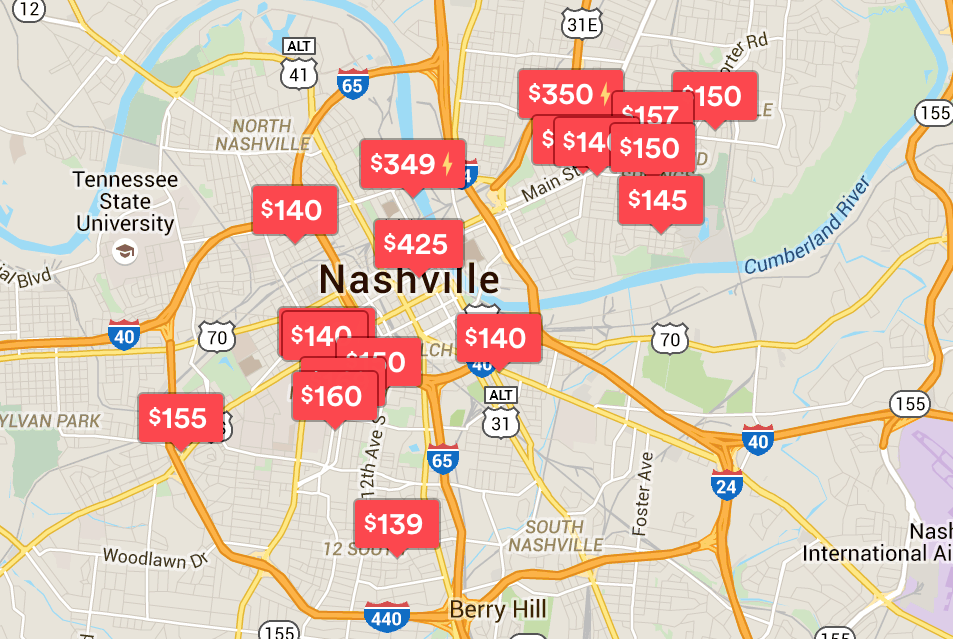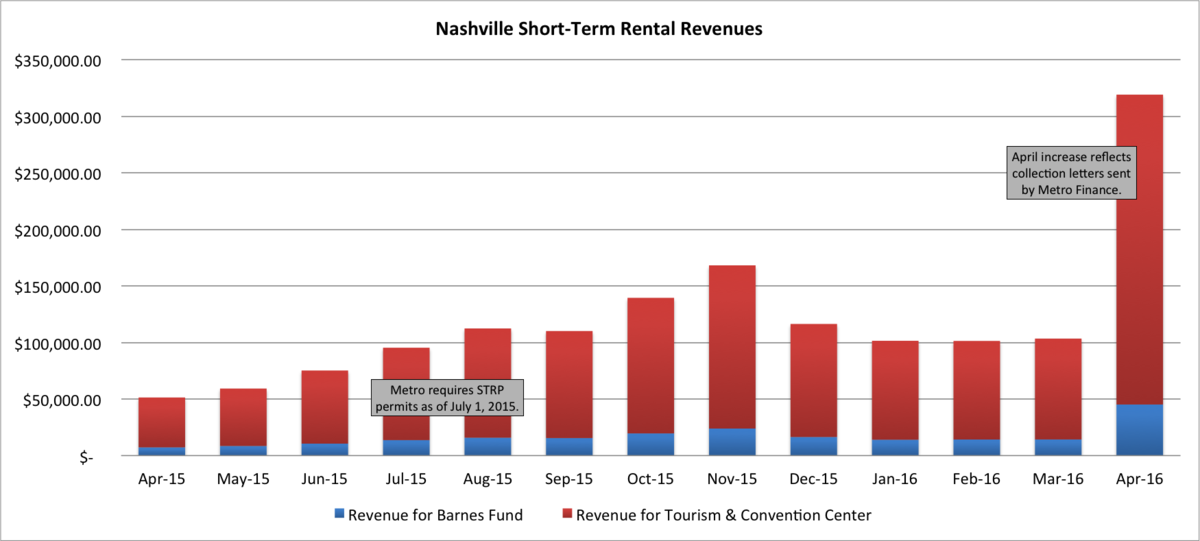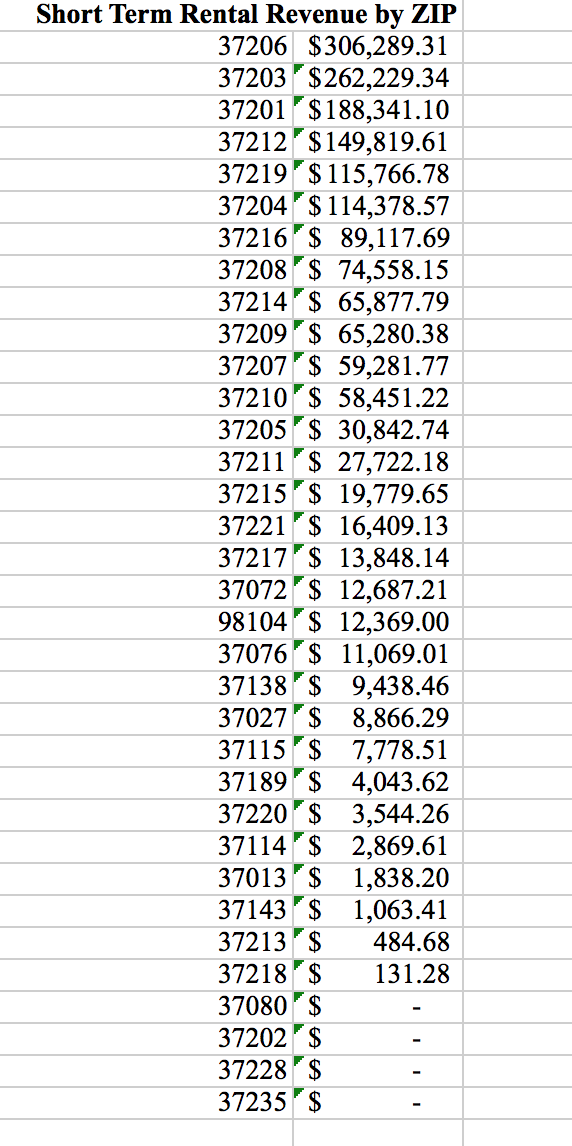
A year ago, Metro Nashville got serious about regulating and taxing Airbnbs and other short-term rentals. Since then, they’ve brought in $1.7 million in tax revenue, according to new data requested by WPLN.
Yet this revenue has not reached a widely cited prediction.
In all, Nashville has issued 1,138 short-term rental permits, ranging from full homes to spare bedrooms. (The permit cost is $50.) Airbnb did not respond to a question about the total number of Nashville listings.
“We have seen a tremendous increase, obviously, month over month over month,” said Zak Kelley, with Metro Finance.
East Nashville has the leading ZIP code, 37206, followed by three downtown ZIPs, then Hillsboro, and the area that includes 12 South and Berry Hill (see ranking below left).
Yet, for all the growth, the revenue is just a fraction of what hotels and motels generate — some $67 million so far this fiscal year. And the short-term rental income hasn’t been what some proponents expected.

One-sixth of the short-term rental money goes into the city’s Barnes Affordable Housing Trust Fund. That’s on pace for about $250,000 dollars this fiscal year, which is substantially less than what advocates hoped for. “$400,000 was ambitious,” Kelley said.
But the amount could grow.
Finance is hiring a staffer to work solely on collecting more of these taxes — as potentially hundreds of Airbnbs still haven’t registered or are evading payments.
City numbers show that a collections letter sent to operators in March likely accounted for a jump in tax filings this spring.
And this week, the Metro Council will consider a stiffer penalty — a three-year ban — for anyone caught renting without a permit. As it stands, the penalty is one year.
Permit enforcement is handled by Metro Codes, which has been blasted by some housing groups for a lack of diligence. In some areas, residents have taken to persistent reporting of properties that are out of compliance.
In proposing the new penalty, Councilman Colby Sledge told constituents that the codes department “has little remedy outside of the courts system to stop persistently illegally-operated short-term rentals.”
“These are properties that have not even tried to comply,” Sledge wrote.


